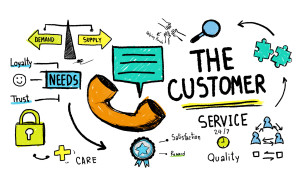I recently attended one conference and had an opportunity to listen to leaders from different industries. Usually in conferences, one gets an opportunity to learn from whatever is said from the platform and also get to learn lot of things during tea or coffee break or on the sidelines of conference.
The topic of the conference is besides the point here. What I want to highlight is the conversation of group of senior executives on the sidelines of the conference.
The main point of this discussion revolved around these two questions.
- How can we survive disruptions or how can we stay relevant?

- How can we have or maintain competitive advantage?
Someone spoke about Eastman Kodak Company. Despite having invented digital photography, the company failed in identifying the shift in the industry and went bankrupt. They could only imagine themselves as being in the film business rather than in the imaging business. Other person spoke about Nokia, yet another spoke about Blackberry.
The discussion then shifted to the new age companies and how their innovation is shaking and sweeping the other industries. One person spoke about taxi aggregator companies and how they have shifted the entire taxi business in customer’s favour.
Yet another spoke about the E-commerce companies and their influence on the topline & bottom line of Brick and Mortar companies.
From Artificial Intelligence on how machines are becoming intelligent by the day to Internet of Things (IOT) to 3D printing to Driverless cars to the impact it will have on employment, the discussion ranged on various developments and was confirming one thing. These things are for real and they are not too far. In the next few years these may start hitting us as realities and can cause lot of shakeups for people and for industries.
So what is the thing that will keep the industry and companies relevant and competitive?
While there are no easy answers to this as I could understand from the discussion, one common thing that emerged is this.
The Organisations’ that have learning culture will have better chance to survive these disruptions, stay relevant and remain competitive.
The group shared multiple views on creating a learning Organisation and the impediments thereof. Here is a gist of these discussions.
An Organisation’s ability to peek in future and see where the industry is headed, how the different forces of this change can impact the core activities of the Organisation and what kind of alignment and re-alignment is required are the issues that will determine its relevance and competitiveness.
The group said while this is largely the responsibility of the senior management, if one is able to develop this approach across levels within the Organisation, it helps greatly.
So how does one go about developing this? Strategic enclaves at senior management level with a relook at it at a defined periodic frequency. At other levels, knowing the Orgnaisational strategy is the first step. The other step is to get into periodic discussion as a group and practicing to look into the future for their division or unit or products in alignment with Organisation’s strategy will help. Managers and leaders consciously building such platforms and opportunities for their teams will be an important step in this direction.
The fundamental element for building this is the competency of learning as an Organisation.
 Learning to translate Information into Intelligence:
Learning to translate Information into Intelligence:
Sample this. Every day, we create 2.5 quintillion (1 X 10^18 or 1 X 10^30) bytes of data. This is 18 zeros on 1 in some countries and 30 zeros on 1 in some other countries. This means as much as 90% of the data in the world today has been created in the last two years alone. This data comes from everywhere: sensors used to gather climate information, posts to social media sites, digital pictures and videos, purchase transaction records, and cell phone GPS signals to name a few.
The ability of an Organisation to translate the relevant industry and organisational information into meaningful intelligence can act as a great differentiator for them to stay relevant and competitive.
So how do we do it?. Today many plug and play softwares allow the business intelligence team to get the meaningful insights from the jungle of data out there. The insights need not be just the function of BI teams or need not restrict to senior management. At division level or unit level, the concerned heads should build the culture of larger teams getting into understanding these insights for Organisation and division or unit levels. The important benefit of this will be better engagement of employees since they will know ‘Why’ they are doing ‘What’ they are doing.
The fundamental element for building this is the competency of learning as an Organisation.
Learning to align activities around Customer:
Companies exist because of their customers. So aligning activities around customers may sound to be a logical and obvious thing. However the discussion of these executives revealed that to create a customer centric Organisation involves resource investments like systems, processes and most importantly the attitude of the employees towards customer.
The fundamental element for building a customer centric Organisation requires the competency of learning as an Organisation.
So fundamentally, three broad things emerged out of the conversation of these executives.
- An Organisation having a competency to understand, analyse and act on the changing landscape.
- An Organisation that has the competency to mine the data, draw
 meaningful insights and have a bias towards execution.
meaningful insights and have a bias towards execution. - Organisation that has the ability to build their activities and offerings around the needs of the customer.
Building learning competency (having knowledge, skills, attitude and behavior of learning) is one powerful way to acquire these things.
This the group concluded can be one of the ways for Organisations to be relevant and stay ahead of the game.
